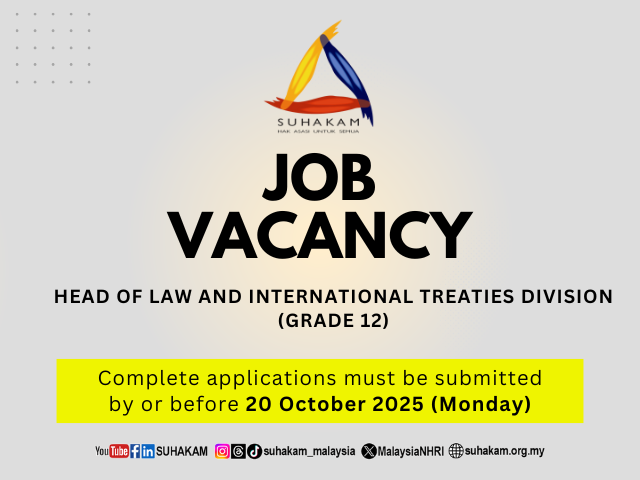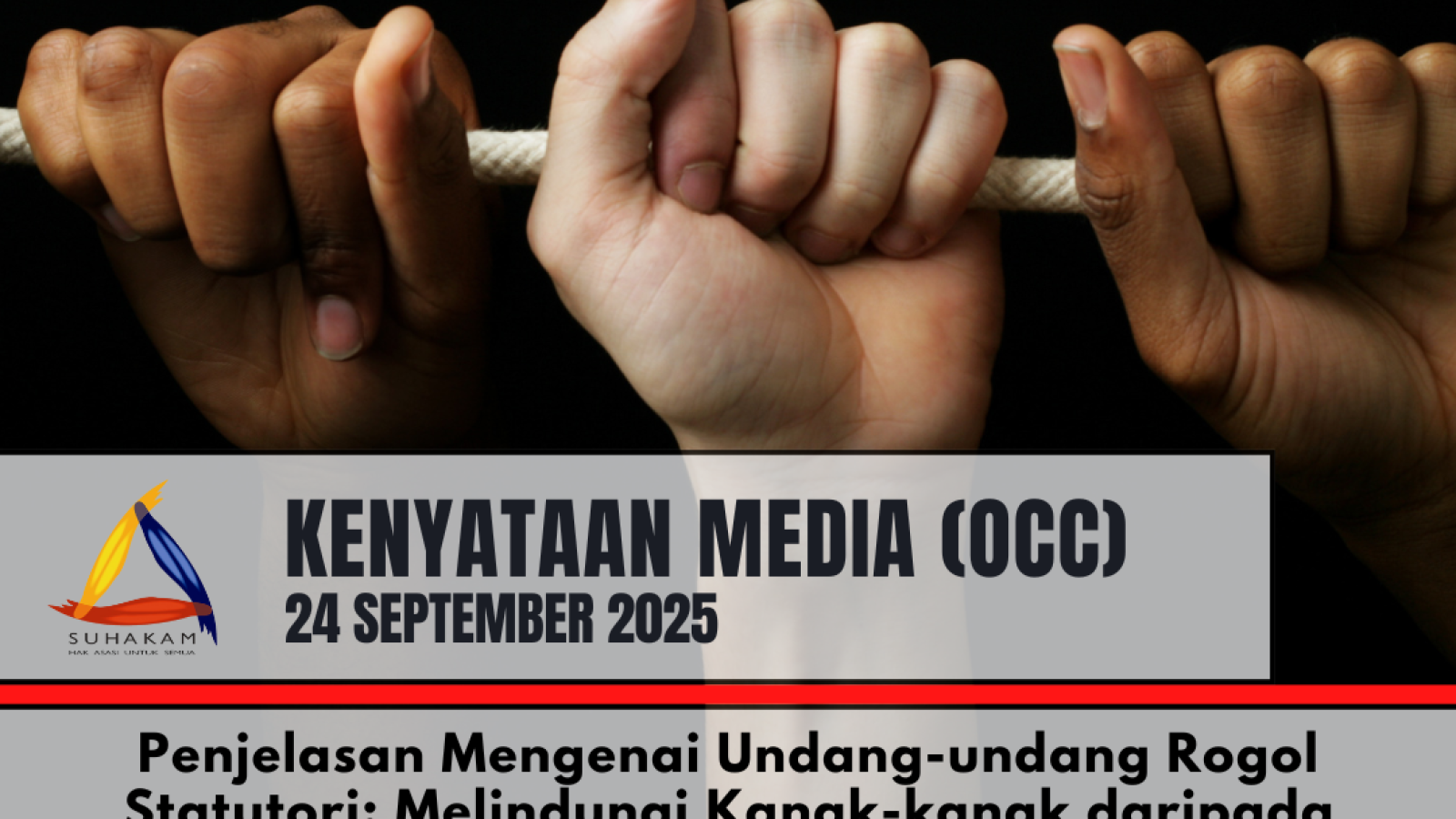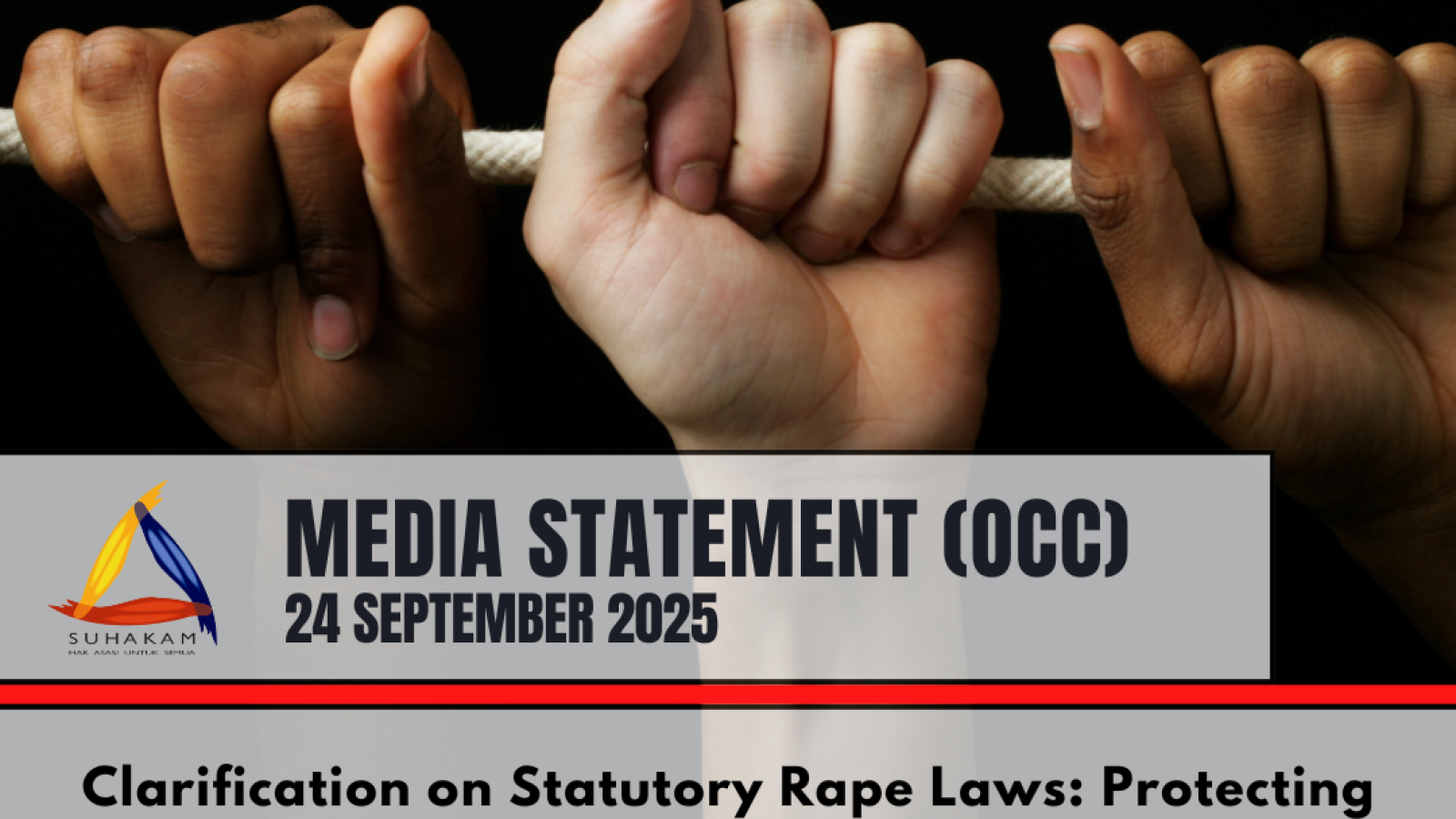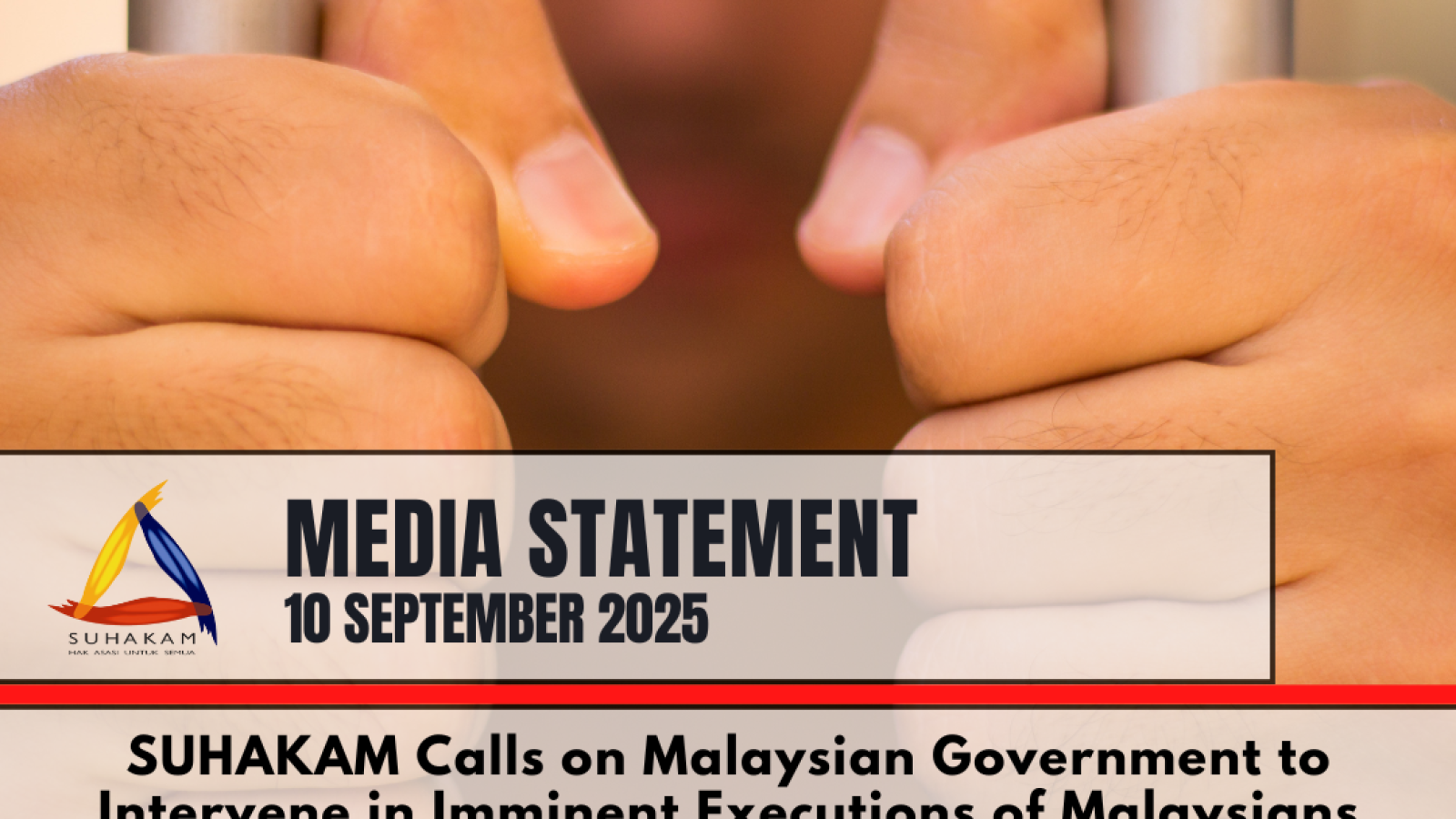KUALA LUMPUR (3 October 2025) – The Human Rights Commission of Malaysia (SUHAKAM) joins the Government of Malaysia and the international community in condemning the reported attack by Israeli forces on the Global Sumud Flotilla, a peaceful humanitarian mission carrying aid to Gaza. The incident, which has resulted in the detention of activists, humanitarian workers, and crew members, including Malaysians, represents a grave violation of international human rights and humanitarian law.
The abduction and detention of civilians engaged in humanitarian work contravene fundamental principles of the Universal Declaration of Human Rights, the Geneva Conventions, and international maritime law. The right to life, liberty and security of person must be upheld in all circumstances, and humanitarian actors must never be targeted for carrying out their lawful and moral duty to provide relief to those in need.
SUHAKAM stresses that the Global Sumud Flotilla is a legitimate and peaceful initiative aimed at delivering urgently needed humanitarian assistance to Gaza. At a time when Palestinians face catastrophic conditions of displacement, starvation, and systemic violations of their rights, obstructing humanitarian aid not only violates international law but undermines the very principles of humanity and dignity.
SUHAKAM calls for the immediate and unconditional release of all those detained, including the 12 Malaysians, and for the safe and unhindered passage of humanitarian relief into Gaza. We further urge the United Nations and the international community to uphold international law, to take concerted action against atrocities, and to ensure accountability for violations of human rights and humanitarian principles.
Malaysia has consistently stood in solidarity with the Palestinian people in their pursuit of justice, dignity, and self-determination. SUHAKAM reaffirms this position and underscores that the protection of civilians and humanitarian workers is not optional, but a binding obligation under international law that all states must respect and enforce.
-END-
Human Rights Commission of Malaysia (SUHAKAM)
Date: 3 October 2025











